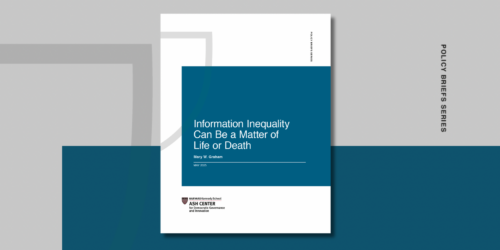
Feature
Reimagining Democracy Summer Reading List
A collection of must-reads curated by Ash Center’s Reimagining Democracy team.
Policy Brief
In most states, redistricting, the process by which electoral district boundaries are drawn, is an overtly partisan exercise controlled by state legislatures. The U.S. Supreme Court’s 2019 decision Rucho v. Common Cause held that federal courts cannot review allegations of partisan gerrymandering. Independent redistricting in practice has proven remarkably successful along several dimensions. This policy brief outlines key lessons learned from redistricting in Arizona, a state with a five-person independent redistricting commission.
Feature
A collection of must-reads curated by Ash Center’s Reimagining Democracy team.
Feature
The official start of Summer is almost here, and Stephen Richer, Senior Practice Fellow in American Democracy and former elected Maricopa County Recorder, shares his summer reading list with a range of books focused on his work of democracy and elections, as well as his personal favorites.
Policy Brief
In this paper, Mary W. Graham, co-director of the Center’s Transparency Policy Project, examines how unintended information inequities undermine critical health and safety alerts. Focusing on three key policies — wildfire alerts, drinking water reports, and auto safety recalls — she identifies common roots of these disparities and highlights efforts by policymakers to address them.

